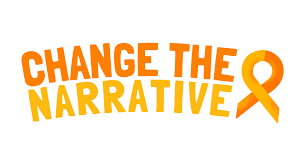
Every year, on September 10th, organisations and individuals from around the world get together to raise awareness around suicide prevention. Suicide Prevention Awareness Week takes place from Sunday 8th September to Saturday 14th September 2024, a time to start conversations around Suicide Prevention and start changing the narrative on how we speak about it. The theme of this year of “changing the narrative” focuses on shifting from a culture of silence and stigma, to one of openness, understanding and support.
Did you know that a recent poll found that only 45% of people feel confident talking to friends and family about suicidal thoughts, compared to 74% who said they feel comfortable talking about mental health. As a country and a community, we’ve come so far at breaking down the stigma towards mental health, so what still feels sticky around asking someone about suicide? In a recent training course we delivered, we asked what were people’s fears around asking someone about suicide, answers varied from “the fear of not knowing what to do next if they say yes” and “what if I put the idea in their head?” So how can we feel more comfortable and confident to support someone feeling suicidal, and how can we encourage someone to open up about their thoughts and feelings?
Look out for the signs:
Thoughts of suicide can be scary and confusing, but 1 in 5 of us will experience them at some point so they are more common than we might think. Because of how complex they feel, it can be tricky for someone to speak about how they feel, so it’s important we look out for the signs:
- Distancing themselves or not replying to messages
- Talking about feeling worthless, hopeless or trapped
- Not doing the things they usually enjoy
- Finding day-to-day tasks difficult
Reach out to anyone you’re concerned about
If you’re worried about someone, ask them how they are feeling and show that you care. Once someone starts to share how they’re feeling, it’s important to listen, without judgement. Ask how they’re doing, using open questions that need more than a yes or no answer, such as “How do you feel?” or “What’s that like for you?” Try not to jump in with your advice or opinions.
Don’t be afraid to ask someone if they’re having suicidal thoughts. People with lived experience of feeling suicidal have often said it is a relief to talk about thoughts they are experiencing. Just being there to listen and showing you care can help.
Let them know support is available
Perhaps you have a friend or family member who is struggling to cope, and you don’t know how to support them. Or maybe you’ve noticed that someone is acting differently and want to check if things are OK.
Let them know that you’re here for them and that if they’re going through a tough time, they can turn to organisations for support too.
Support Services
Supporting someone who feels suicidal
Ditch the stigma
Remember we said before that 1 in 5 people will have suicidal thoughts? By highlighting how suicidal thoughts are more common than people might expect, and that talking about suicidal thoughts is helpful, we can help break the stigma surrounding the subject that often prevents people from opening up.
So we’re asking you to “Start the Conversation” with individuals, communities, organizations and anyone you know to encourage them to engage in open, honest conversations about mental health and suicide. By starting conversations we can break down barriers and raise awareness, check in with a friend or loved one, share personal stories and advocate for mental health resources and support services. Every conversation, no matter how small, contributes to a more supportive and understanding society.
Our Healthy Shetland team are working hard behind the scenes developing a training course designed to help you have conversations and support people feeling suicidal. Keep an eye on our socials for more information on when this is available to book.
WSPD_Finding_a_way_to_say_it_FINAL_mBZaBXL